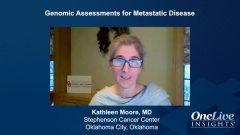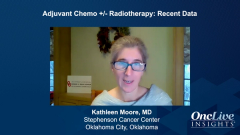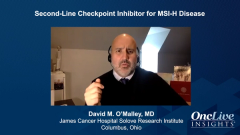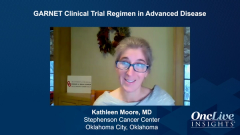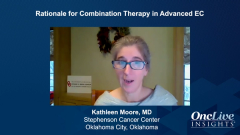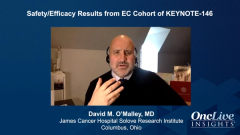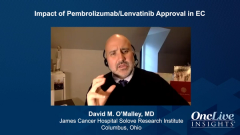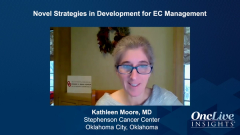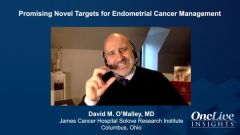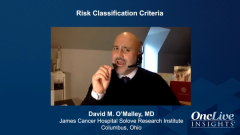
Second-Line Checkpoint Inhibitor for MSI-H Disease
Episodes in this series

David M. O’Malley, MD: As we look at the data in MSI [microsatellite instability] high from KEYNOTE-158, I was honored to present this at last year’s ESMO [European Society for Medical Oncology Congress] in a featured poster. This data has now been published in the JCO [Journal of Clinical Oncology], looking at response rates in MSI-high endometrial cancers of 57%. That was markedly better than the original reports, which were about 35% to 37%. As we look at these patients, the clinical benefit is beyond the objective response rate of 57%, with most patients achieving some clinical benefit.
It’s very important when evaluating the biomarkers—at the very least in recurrence, but you could argue at the time of diagnosis—to know what the mismatched repair protein expression is. It’s very important if that is with advanced disease. I would argue to also check PCR [polymerase chain reaction] for MSI.
The impact of pembrolizumab availability has been marked. We previously didn’t have a decent second-line drug for endometrial cancer. It has completely changed the way I look at a patient with recurrent uterine cancer. I’ve always said there’s no possibility of curative intent in recurrent cancer. But now I have to think twice before I say that. When looking at this 57% or 58% response rate, about 10% plus or minus will get complete responses.
All of us who use these agents have several patients with recurrent uterine cancer in our practice who have been cured. We are in a completely new world, and all of us who treat these patients see this. To deny a patient who has MSI-high or an MMR [mismatch repair]–deficient uterine cancer the access to pembrolizumab, I would argue, is not adhering to standards of therapy.
Let me clarify 1 point. When I was talking about access to pembrolizumab for patients who are mismatch repair deficient, I was talking about patients who have recurrent tumors or who have already been treated with carboplatin-paclitaxel. Combining pembrolizumab with carboplatin-paclitaxel has not been adequately studied. Ongoing trials are evaluating whether it adds to carboplatin-paclitaxel. When I’m referring to pembrolizumab for mismatch repair–deficient patients, I’m referring to the recurrent setting. I would not recommend utilizing it instead of carboplatin-paclitaxel at the current time.
Many people ask me what other tumor markers are checked, such as PD-L1 expression and TMB [tumor mutational burden]. I’m pretty adamant about not checking PD-L1 expression. It has not been shown to be predictive in uterine cancer, and we don’t have an indication. TMB is a different story. Do I send it separately? Not usually, but if it’s part of a commercial package. When I check NGS [next-generation sequencing], I definitely will include it. Obviously with the indication in pembrolizumab, I haven’t found that if somebody is an MMR-proficient tumor that they are then TMB positive, but it’s probably worth checking if you’re sending it off. I don’t normally check it separately.
Transcript Edited for Clarity


